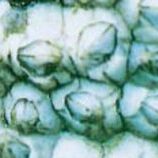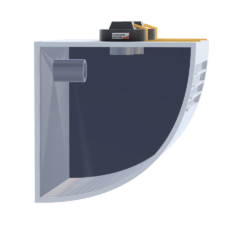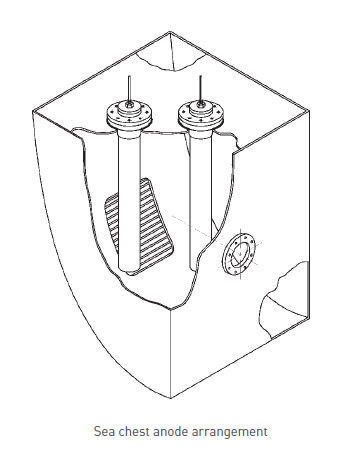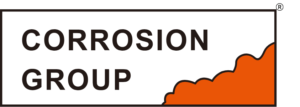Is your vessel trading or going to be trading in EU waters?
Article 95 of The EU Biocidal Products Regulation (528/2012) came into force on 1st September 2015. Corrpro Companies Europe Limited are an Authorised Active Substance Supplier for this equipment. Ensure your compliance. Please contact us for further details.
Avoid the penalties of non-compliance – Corrosion Groups MGPS systems today
Principle of Operation
Marine fouling and biofouling commonly occur in seawater circulation systems. This involves the establishment of marine organisms and bacterial growths. The fouling organisms enter the system in microscopic and macroscopic form (eg. larvae) and spats settle and develop into adult forms wherever environmental conditions exist.
Hard fouling by mussels, barnacles etc, most commonly occurs in seawater circuits and can result in interference in flow conditions, blockage and increased corrosion. Traditional chemical methods of water treatment to prevent fouling are now less favoured, particularly chlorination. Chlorine accelerates corrosion rates, usually by causing pitting attack on steel, is environmentally unacceptable and treatment requires continuous monitoring and control.


Typical acorn barnacle (ballanus species)
Anti fouling system
ICAF by Corrosion Group®
The ICAF system by Corrosion Group® applies direct current to copper anode(s) releasing a controlled quantity of copper ions into the system to create an environment in which primary forms of marine life do not grow. Current applied to the aluminium anode releases a ‘floc’, a precipitate of aluminium hydroxide.
The aluminium oxidation products reduce corrosion rates on ferrous components in the seawater system by modifying the ferrous oxides and by film deposition. Similarly, iron anodes are utilized for cupro-nikel pipework.
The system requires minimal maintenance and is environmentally friendly. Mussels are not killed by the systems: the environment it creates prevents them settling or developing. A further benefit on the Anfomatic® system is that potable water distillation of plants can be operated without interruption.
Anodes & Spares
Each microscopic controlled module supplies two anodes. The current flowing to each anode is indicated by digital display. This allows visual monitoring of all the separate anode currents. The unit also incorporates the following features as standard:
- IP rating: 56
- Manual or automatic switching between normal operation and standby modes
- Reduced output option when running on DC back up supply to reduce battery drain
- Green “Power ON” indicator LED
- Red LED and onscreen warning indication for anode failure
- Option to include remote control by PC interference
- Signal outputs compatible with IAMCS operation
- Power failure relay for connection to an independent alarm system
- Standard colour: RAL 7035
Antifouling Anode
The antifouling anode is a rod of our Cuproline alloy used in conjunction with an anti-corrosion anode.
Anti-Corrosion Anode
Depending on the location of the anti-corrosion anode in seawater circulation system and the metal it is protecting, the material will be one of two alloys: Aluminium or Iron.
Availability
The worldwide nature of Corrosion Group operation means that antifouling systems can be designed and fitted to vessels wherever in the world dry docking is available. Whilst installation is a straight forward procedure, Corrosion Group staff are always on hand to provide specialized advice and to assist with commissioning. In addition Corrosion Group can supply replacement anodes and spares for most types of antifouling systems and box coolers.

Certifikat


